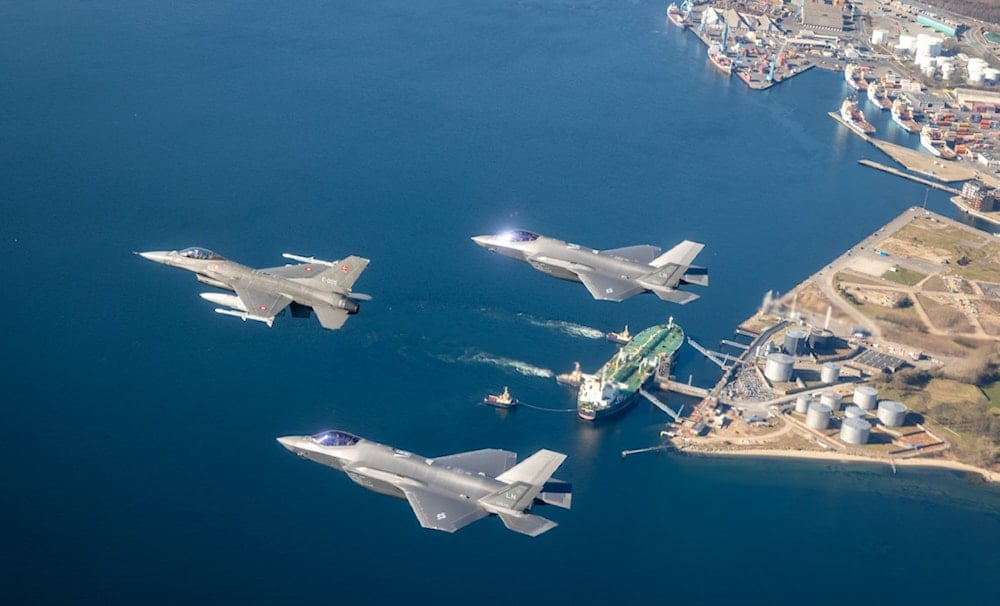Russia slams US-Denmark military pact as threat to its security
Russia condemns a new US-Denmark defense agreement granting Washington extensive military access to Danish bases, warning it undermines Danish sovereignty and escalates NATO's military presence near Russian borders.
-

F-35 fighter jets from Lakenheath Air Force Base in the United Kingdom, visiting Fighter Wing Skrydstrup, undated (Forsvaret.no/Danish Armed Forces)
Russia has expressed deep concern on Monday over a recently ratified defense agreement between Denmark and the United States, warning that it could intensify military tensions along its western frontier and further entrench NATO's presence near Russian borders. The pact, signed in December 2023 and approved by the Danish parliament on June 11, 2025, grants Washington sweeping military privileges in Denmark for ten years.
Under the deal, the United States will gain full access to three strategic Danish military airbases, Karup, Skrydstrup, and Aalborg. US forces will be allowed to construct infrastructure, pre-position equipment, and station troops, all while operating under exclusive US military and legal jurisdiction. Danish authorities will then have limited power to oversee or regulate US military activities on their soil.
This arrangement has drawn sharp criticism from Moscow, where officials see the move as a significant escalation in NATO's military posture along Russia's borders. In response, Russian Ambassador to Denmark Vladimir Barbin warned in an interview with RIA Novosti that the agreement grants Washington the ability to establish threatening infrastructure near Russian territory.
"This means that the US will be able to deploy its military infrastructure near Russia's border and generate threats to our national security from Danish territory. The future will show how this agreement will be implemented in practice," Barbin stated.
A major concern voiced by Barbin is Denmark's limited oversight regarding the types of weapons, particularly nuclear-capable systems, that the US may introduce under the agreement.
Sovereignty Clash
"In this regard, Denmark's ability to ensure that nuclear weapons are not deployed on its territory in peacetime is questionable," he added.
The pact has also sparked domestic controversy within Denmark. A significant portion of the public, according to recent polls, views the United States as a growing security risk, with nearly half of Danes expressing opposition to the presence of permanent US military bases. Critics argue that the agreement undermines Danish sovereignty by allowing foreign troops to operate with legal immunity. The Danish Institute for Human Rights has also raised red flags over the potential for US forces to act without accountability during civil unrest or protests.
Opposition politicians, including Unity List leader Pelle Dragsted, have condemned the deal as "harmful to the country," arguing it surrenders parts of Denmark to foreign control and weakens democratic oversight.
Read more: Denmark revives conscription in bid to build wartime reserve
Despite these objections, the government pushed the agreement through parliament with a majority vote, defending it as a necessary measure to strengthen transatlantic ties and European security. In turn, Prime Minister Mette Frederiksen insisted that the pact includes provisions for withdrawal if national interests are compromised.
In Moscow, however, the agreement is being interpreted in the context of a broader NATO strategy of encirclement, following similar bilateral arrangements with Finland and Sweden. Additionally, the Kremlin maintains that such moves reflect a militarized approach to European security and has urged the West to pursue dialogue on equal footing.
For their part, Russian officials say they remain open to engagement with NATO but stress that any meaningful discussion must be based on mutual respect and a rejection of unilateral military escalation.

 3 Min Read
3 Min Read











